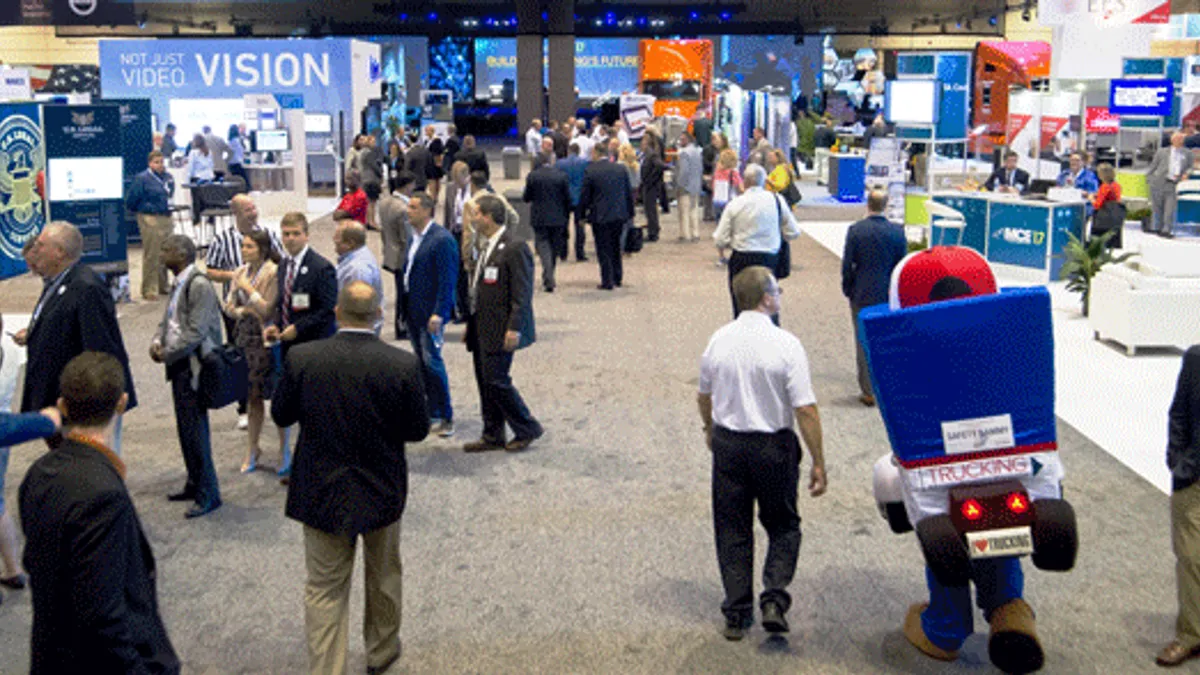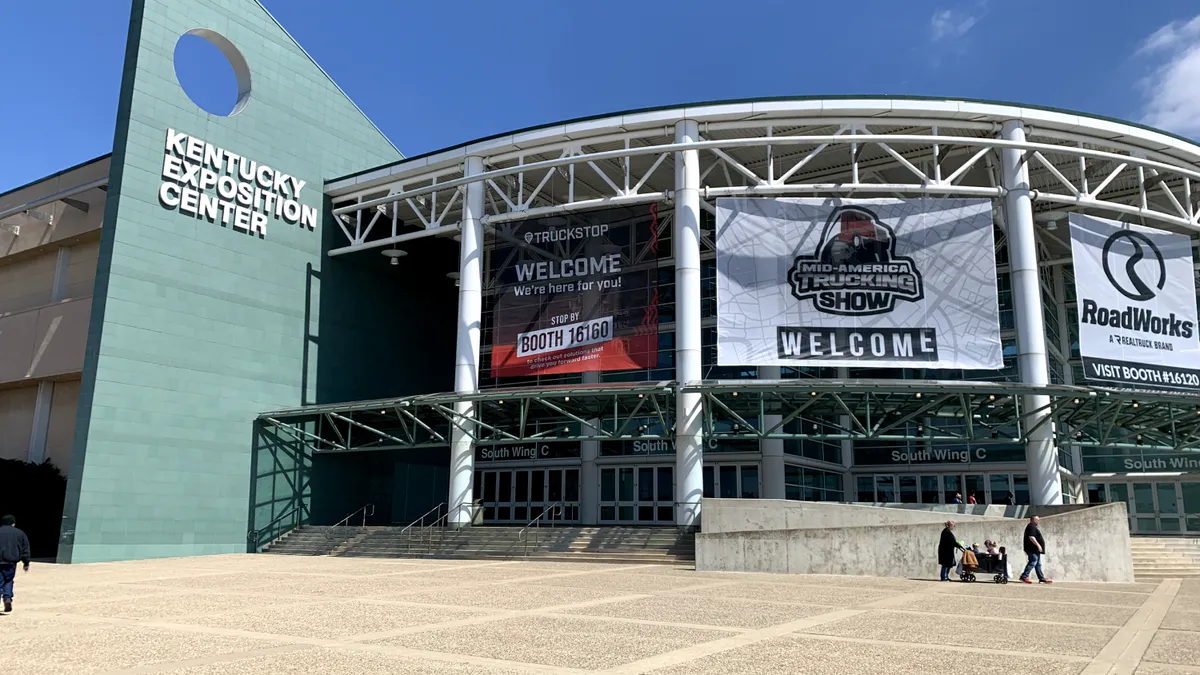Dive Brief:
- The American Trucking Associations (ATA) began registration on Monday for its Management Conference and Exhibition (MCE). The annual event, one of the largest trucking events in North America, will take place from Oct. 24-27 at Denver's Gaylord Rockies Resort. "MCE will be the first major opportunity for trucking industry leaders to convene with colleagues from across the nation, as the country begins to recover from the coronavirus pandemic," ATA said in a press release.
- The announcement shows the ATA does not see reason, at the moment, to cancel the fall event due to COVID-19. A slew of other freight and logistics conferences were removed from the calendar earlier this year because of the pandemic, from the IHS Markit canceling its TPM Conference in Long Beach, California, which would have run from March 1-4, and the Mid-American Trucking Show, which was scheduled for March 26-28 in Louisville, Kentucky.
- Another major event, slated for this fall, canceled. The IAA Commercial Vehicles conference, held in Hanover, Germany, canceled its 2020 event, which was scheduled for Sept. 24-30. "It was a difficult decision to make," organizers said. "Yet in view of the overall situation in Europe and around the world, we do not see any possibility of holding the IAA this year in its familiar form as a platform for exhibitors and visitors." The IAA event is perhaps the largest trucking show in the world, and is held every two years in Germany. Its next event will be in September 2022.
Dive Insight:
Conferences are a major source of income for trucking, freight and logistics organizations, and the pandemic did substantial damage to the revenue of the parent firms of such events. Many such firms were left to switch modes, moving some events to webinars.
For media outlet Freightwaves, revenue from in-person events accounted for 40% of its total, according to founder and CEO Craig Fuller. After COVID-19 hit, Fuller tweeted, "we lost 1/3 of our revenue overnight (in-person events — a $7 [million] annual impact). But we also had access to other $$$ and the rest of our biz actually increased."
"This week we hosted more than 90,000 people on our first virtual conference," Fuller tweeted on May 9. "235,000 streams and 5.3 [million] minutes of content. No in person industry event would have had that much reach. There is a powerful opportunity in high-quality virtual events."
"We moved to virtual events and that has gone very well," Fuller told Transport Dive in a Monday message. He said that he imagines membership-driven organizations "receive a lot of their membership interest due to their events and the social elements that go along with them (not to mention financial support from sponsors). That creates pressure to host the events."
The events are also important to those who attend, from vendors and exhibitors to people looking to make contacts within the trucking industry.
Christy Ferguson, an analyst writing for Gartner's blog, said respondents to Gartner’s 2019 Tech Marketing Benchmarks Survey indicated that technology and service providers spend an average of 11% of marketing programs budget on third-party trade shows.
"Attending conferences is a must in the transportation industry. They connect you with your peers, expand your knowledge, gift you with unexpected experiences, and catch you up on ever-changing industry news and regulations," said Leah Kelly, communications manager for Tenstreet, which offers driver recruiting software and consulting services.
But one big challenge to assess holding U.S. events in the fall will be the standards for reopening, as each state has a unique plan.
Lauren Precker, senior manager for public relations for the American Society of Association Executives (ASAE), told Transport Dive that her organization has compiled a COVID-19 issues roundup page to help associations with their reopening plans. As for ASAE, Precker said the organization has decided to go ahead with some in-person conferences in the fall.
"There are obviously a lot of unknowns," said Precker. "We don't know what all the restrictions will be."
Precker said ASAE will also accommodate the requests of members who want to attend virtually.
Colorado opened its restaurants on Wednesday, allowing fewer than 50 people, or 50% capacity, whichever is less. The state has been more aggressive than most, according to Politico, which reported COVID-19 cases in the state fell to 249 on May 25, after peaking on April 23 at 972.
MCE is the largest annual event put on by ATA. What precipitated ATA to move forward with the MCE is unclear. ATA did not return a request for comment by publication time.












